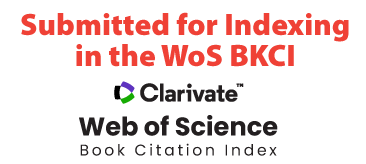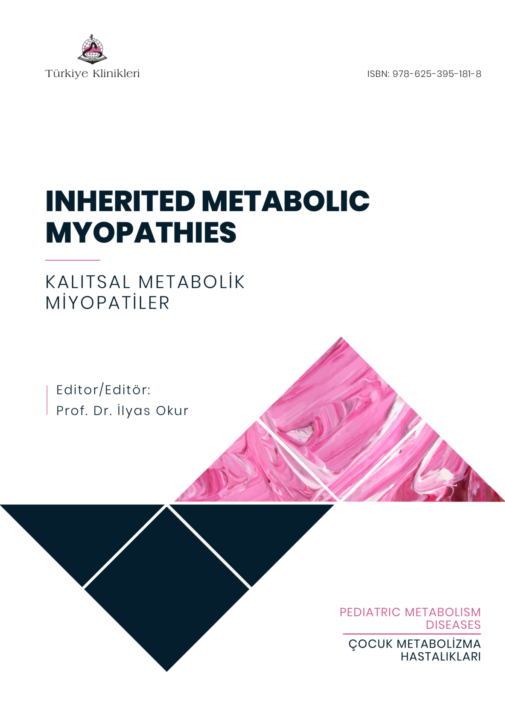Myopathies are a heterogeneous group of disorders primarily affecting the skeletal muscle structure, metabolism, or channel function. They usually present with muscle weakness interfering in daily life activities. Muscle pain is also a common finding and some myopathies are associated with rhabdomyolysis.
Myopathy develops as a result of hereditary (congenital or genetic) disorders or acquired conditions of the muscles. Electrolyte imbalance, dehydration are the most common causes of myopathy. Immune disorders accompanied by myopathy may result with inflammation and pain. Also, various inherited myopathies may be associated with rapidly progressive weakness, muscle atrophy, inflammation, muscle fiber metabolism dysfunction, muscle spasm, or stiffness.
Metabolic myopathies are a group of inherited metabolic muscle diseases caused by enzymatic defects due to genetic mutations. These defects impaire the muscle energy metabolism, resulting with skeletal muscle dysfunction. Metabolic myopathies primarly include congenital disorders of glycogen, lipid or mitochondria metabolism. Metabolic myopathies are rare and usually their clinical findings consist of exercise intolerance, cramping, and myoglobinuria or progressive muscle weakness. Exercise, fasting, cold, infections and some medications can trigger symptoms in metabolic diseases that affect the muscle.
Altought in some of this group of diseases, the problem is limited to the skeletal muscle, in most of them, involvement of other organs such as the retina, brain, kidney, liver and especially the heart, which have significant energy needs may be seen. Diagnosis of metabolic myopathies is usually consist of detailed exercise and diet history and careful evaluation of clinical, histopathological, biochemical and, more recently, molecular analysis. Most of them have no specific treatment, but supportive care that includes changes in physical activity and diet, aerobic exercise training, and the addition of various vitamins and supplements may help. Since supportive treatment provide patients to continue to their routine daily activities and a normal life, it is of great importance to make a correct diagnosis according to clinical approach and laboratory studies. In recent years, thanks to advanced biochemical techniques and new generation sequencing analyses, the time to make a diagnosis is shortening and the chance of diagnosis is increasing. The fact that chaperone treatments used in some mutations causing misfolding of proteins, treatments that reduce the accumulated substrate, and gene therapies have been used in human studies in these disease groups, increases the importance of early diagnosis. For this reason, ”Inherited Metabolic Myopathies” have been discussed with all aspects in this book in order to raise awareness for the hereditary metabolic myopathies, which can first apply to family physicians, pediatricians, internal medicine specialists, and then to can be consulted to pediatric metabolism, pediatric neurology and neurology departments.
Prof. Dr. İlyas OKUR
Editor
Gazi University Faculty of Medicine, Department of Pediatric Metabolism Diseases, Ankara, Türkiye
Bölümler
Introduction and Classification of Inherited Metabolic Myopathies
Ekin ÖZSAYDI AKTAŞOĞLU, Leyla TÜMER
Biology and Metabolism of Muscle Tissue
Atiye Seda YAR SAĞLAM, Duygu Deniz USTA SALİMİ
Muscle Glycogenoses and Other Inborn Errors of Carbohydrate Metabolism That Affect Muscle
Çiğdem Seher KASAPKARA
Inborn Errors of Fatty Acid Metabolism That Affect Muscle
Ayça Burcu KAHRAMAN, Yılmaz YILDIZ
Mitochondrial Myopathies
İlknur SÜRÜCÜ KARA, Fatma Tuba EMİNOĞLU
Inborn Errors of Purine Nucleotide Metabolism That Affect Muscle (AMP Deaminase Deficiency)
Aynur KÜÇÜKÇONGAR YAVAŞ
Rare Metabolic Myopathies
Suzan İCİL, Asburçe OLGAÇ
Differential Diagnosis of Metabolic Myopathies
Ayşe KILIÇ
Symptomatic Evaluation of Metabolic Myopathies
Fehime ERDEM, Ebru CANDA
Biochemical Diagnosis in Metabolic Myopathies
Rıdvan Murat ÖKTEM, Gürsel BİBEROĞLU
Diagnosis Methods of Metabolic Myopathies: Physiological Tests (Forearm Exercise Test)
Banu KADIOĞLU YILMAZ
Diagnosis Methods of Metabolic Myopathies: Electrophysiological Evaluation (Electromyography and Nerve Conduction Studies)
Hüseyin Bahadır ŞENOL, Çağatay GÜNAY, Uluç YİŞ
Diagnosis Methods of Metabolic Myopathies: Cardiac Evaluation (Electrocardiogram, Echocardiogram)
Fatma HAYVACI CANBEYLİ
Diagnosis Methods of Metabolic Myopathies: Imaging Techniques (Ultrasonography, Elastography, Computed Tomography, Magnetic Resonance Imaging)
Birsel ŞEN AKOVA, Suat FİTOZ
Diagnosis Methods of Metabolic Myopathies: Hystological Evaluation of Muscle Tissues
Beyza BELDE DOĞAN
Genetic Evaluation of Metabolic Myopathies
Ekin ÖZSAYDI AKTAŞOĞLU, Filiz Başak CENGİZ ERGİN, Aslı İNCİ
Current Advances of Treatment of Metabolic Myopathies
Harun BAYRAK, Fatih Süheyl EZGÜ
Algoritms Used in Diagnosis and Treatment
Ayşe Nur ALTUN, İlyas OKUR



